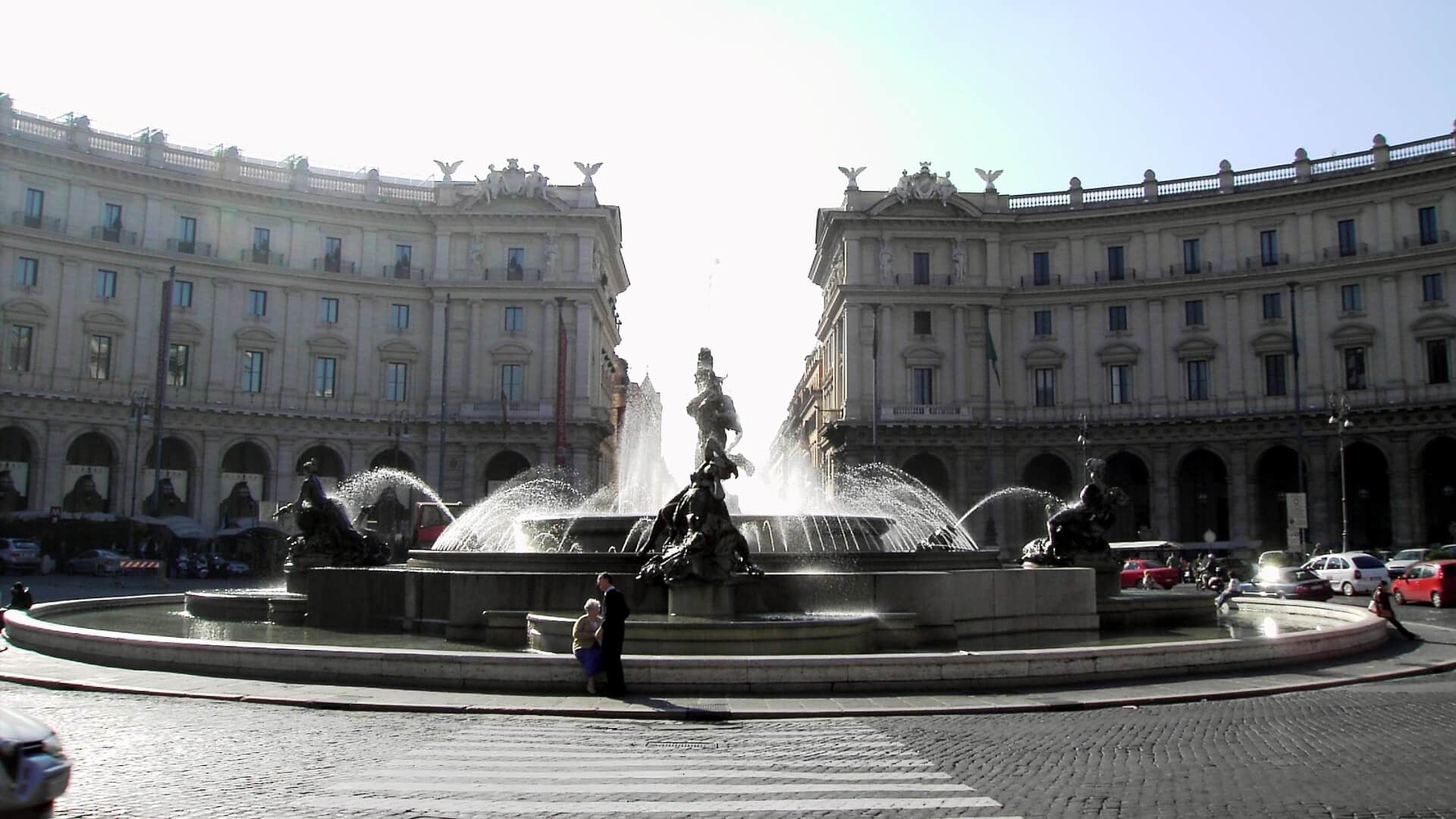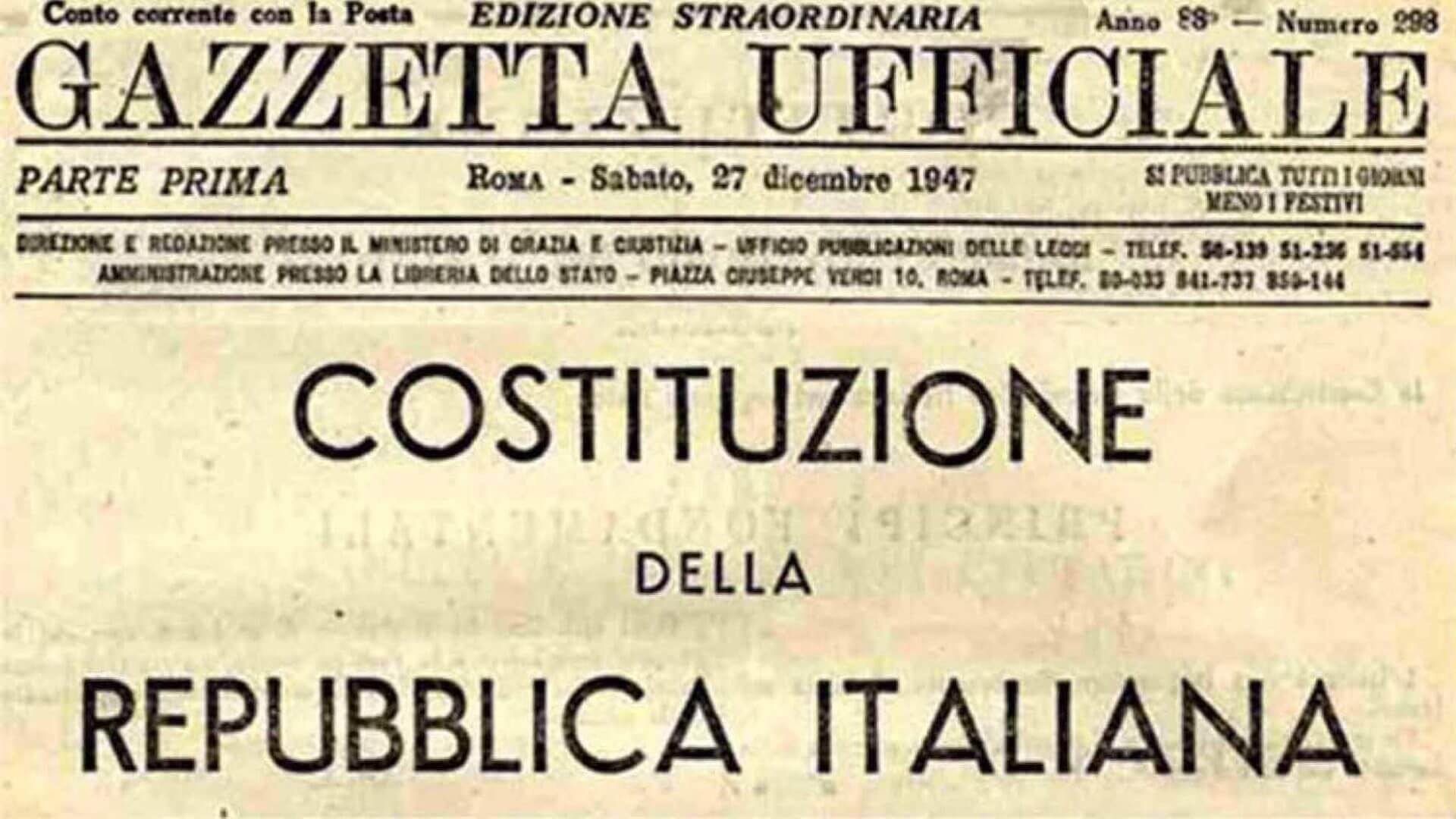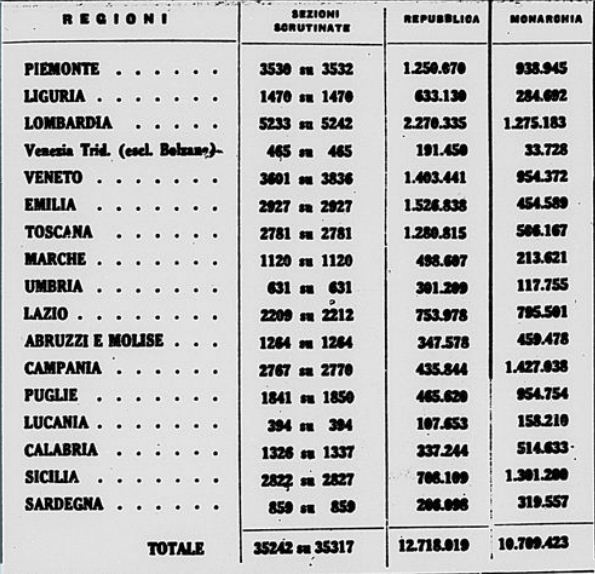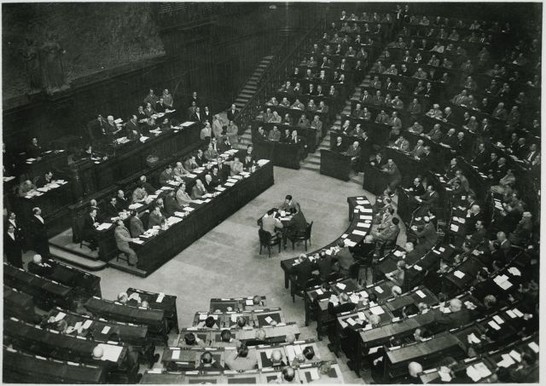What do you think about Italian Republic Day?
The 2nd June is Italian national and Republic Day. It commemorates the referendum held in 1946, after the Second World War, in which Italian people – for the first time with universal suffrage – were asked to choose between monarchy and republic. From that day, Italy has become a Republic. We had a chat with some young people from different countries to discuss their opinion concerning this event and much more…
Hello guys! Could you introduce yourself?
– Georgij, 23, my nationality is yazidi, I currently live in Saint Petersburg, Russia. In the past I lived in Rustavi, Georgia.
– Stella, 23, I’m English and I live in United Kingdom.
– Olga, 21, I am from Belgium.
– Andrei, 26, Romanian. Living in Hungary, have also lived in Poland.
– Papis, 33, Senegalese. Now I live in Italy. I came here from Senegal going through France when I was 23 years old and I also spent a year in Norway.
– Pieterjan Leuridan, I’m 20 years old, Belgian and currently studying in China for eleven months.
– Wysali Trapiello Fernández, 25, from Spain, and living actually in Spain. I have been in Poland for 6 months, for my Erasmus.
– Violeta, 27, Spanish, living in Spain, lived in Poland for 10 months.
Did you know that Italy is a republic? Have you heard about the 2nd June before? If you have, have you studied it at school or do you consider it as part of common knowledge?
Georgij – I knew that Italy was a Republic, but didn’t know about the Republic Day.
Stella – I knew it was a republic from common knowledge but know nothing about the 2 June.
Olga – I knew that Italy was a Republic but didn’t know that the Italian national and Republic Day was the 2nd of June. Maybe I studied it at school, but I don’t think that a lot of people here know this day and what it represents in Italy.
Andrei – Yep. Nope.
Papis – Of course I know that Italy is a parliamentary republic, but I never remember that 2nd June is commemoration day of that event, I just know that it’s a public holiday. When I was a child I studied French history, so I know that their Republic Day is 4th June, but we didn’t study Italian history.
Pieterjan – I learned that Italy is a republic in high school, but I would have known otherwise too: I’m European, Italy is an important European country and I’m quite interested in politics. Although, I didn’t know that the Italians celebrate Republic Day on June 2.
Wysali – I know Italy is a republic. For sure I studied it at school, however I consider it is as part of common knowledge, because for us Italy is a neighbouring country. Nevertheless, I didn’t know exactly the 2nd June is Italian national and Republic Day.
Violeta – Yes, I knew but I didn’t know it was on the 2nd of june, neither the year
Which is the form of government ruling in your country? Do you have a celebration day to commemorate the fundation of this institution?
Georgij – My country is a presidential republic. We celebrate it the 12th of June, known as the Independence Day.
Stella – Public voting is the form of government ruling… There isn’t any celebrations but the queen will provide a speech a few weeks after the polling results are out.
Olga – Belgium is a Constitutional Monarchy. Our National Day is the 21st of July. It celebrates the day the first king of Belgium swore allegiance to the new Belgian Constitution in 1831 and commemorates the Independence Day of Belgium.
Andrei – Romania is a republic. No one celebrates the day Romania became a republic because I think no one was happy about that. Except the communists, who ended the kingdom forcefully.
Papis – Senegal is a presidential republic, on the example of France. Last year my wife and me were in Dakar on 4th April and it’s Senegalese Republic Day: the main street of Dakar has been closed for a day and there was a parade of law enforcement and politicians. It was similar than in Italy: children was really happy, because they didn’t have to go to school and they sang the national anthem, because they had studied it in those days. The majority of adult people was not particularly interested about the event, because in Senegal there aren’t national holidays for workers, they are just for public employees.
Pieterjan – Belgium is a constitutional monarchy, with the monarch only having ceremonial power. The prime minister actually is the most important person in the government. We commemorate the inauguration of Leopold I, the first Belgian king, on July 21, our National Day.
Wysali – Spain was a fascist country until 1975, governed by Francisco Franco. One year later our actually monarchy started – Borbones. Six of December is the day we celebrate the proclamation of parliamentary monarchy, but the king only has a representative role.
Violeta – In Spain we have an imposed monarchy. There was a republic in 1931 because the king ran away, but in 1936 there was a “coup d’etat” and the dictator Franco won. When he died, he proclaimed Juan Carlos as a king, from Borbón family. We don’t celebrate that fact. Instead, some of us, Spanish people, we celebrate the 14th april, day of that republic we had before the war.
Republic and monarchy – what do you associate these words with and what’s the best and the worst of the two, considering in particular the country you live in or other countries whose political situation you know quite well.
Georgij – I associate the word “republic” with words like “France” and “freedom”. For me, “monarchy” can be associated with “tradition”, “king” and “totalitarism”.
Stella – I associate both words as having power over ruling the country… It used to be the monarchy that was important, now in the 21st century the monarchy is looked into as a tradition than having the rights to rule… Republic in my view means we all have a say… Either results have advantages and disadvantages… You can’t please everyone… It’s nice to have a tradition and be ruled by the monarchy to prevent different arguments but sometimes a range of opinions provide shaping the country to its best.
Olga – I would associate Republic with democracy and Monarchy with illegitimate power (are you competent in State tasks because you are the son or the daughter of some special person?).
In Belgium we have a Monarchy, but actually it’s a democratic country because the king doesn’t have any power (…almost any). The country works more or less like a Republic, the king is there mostly to symbolize and maintain the unity in Belgium… Not an easy thing :p
Andrei – I’m sure each of the two forms has its good parts and bad parts. I hear a lot of Spanish people for example complaining about the monarchy nowadays, but for example Romania was doing much better as a monarchy, until 1947. I think the best form of government depends on the people.
Papis – Looking at my European experience, I think there are more differences between Presidential republic and parliamentary republic and baetween bsolute monarchy and parliamentary monarchy than from republic and monarchy themselves. I like the examples of Germany and England: in both countries politicians work for making the best for their country. I don’t like the presidential form: presidents feel themselves justified of doing what they want because they were elected; otherwise often the emperors need their people’s approval, especially if they need parliamentary confirmation.
Pieterjan -The word I associate with ‘republic’ is ‘president’: he is the head of state in every republic, though not always the head of government, in countries as Italy and Germany, I think he mainly has a ceremonial role. Contrarily, a monarchy is lead by a monarch. Presidents are usually chosen by the people, the parlement or an electoral college, while most monarchies are hereditary, which means that all monarchs come from the same family. I think a monarchy is not democratic and therefore personally prefer a republic. A monarchy can be a better choice of government in divided societies though, since he’s impartial and stands above the political parties. A president should act in this way too, but often comes from a political party, and will in my opinion always be slightly biased. In Belgium for example, a lot of people say it’s good that we have a king, because he can keep the two parts of the country (Flanders and Wallonia) together. They say it would be difficult for a president to do so, since he alwas comes from either Flanders, either Wallonia.
Wysali – I don’t think there is a big difference, because eventually it is people who has the power, because they are those who choose the president of the government. But in Spain it is a controversial topic, because some regions want to be independent, and the monarchy is the best way to have a solid union.
Violeta – Particularly, I think monarchies nowadays are useless. We don’t need them, they do nothing for the people but taking our money. For me, monarchy is blockage, old time, classism. Republic is future, equality, evolution. “Liberté, égalité, fraternité”.
How do you judge the possibility, given to Italian people, to choose their form of government? Do you consider it an important historical event?
Georgij – Of course the referendum of June, 2nd is an important even in Italian history. Time showed that it wasn’t a meaningless event. I agree with the fact that this referendum has become a manifestation of the people’s will.
Stella – To be able to form your countries government is a very important event… I think everyone should have their opinions and points of view delivered to provide the best for their country. I think it’s great for Italians to have a say and form their government but I don’t really understand politics so I’m unsure on the background… But if you are given a chance to vote or give an opinion I think it’s important you do; as young people we shape the future of the world…
Olga – Yes, I think it’s good to have the possibility to choose the form of government and yes I think it is an important historical event.
Andrei – It means a lot if the people can choose it. I think democracy is important no matter what the form of government is.
Papis – For each population it is important to choose their own government , so it’s important that every country in the world that goes in this direction.
Pieterjan – I think the fact that the Italian people seventy years ago had the choice which government they want absolutely is an important historical event. In every modern democracy, the people should get the chance to decide how their country is governed, so I consider a referendum like the one held in Italy in 1946 as a milestone for democracy. But there is an important prerequisite: the people should be well informed before the referendum, there should be debates and experts expressing their opinion and explaining the situation in other countries. This is the only way the people can form an opinion based on facts: in the end, the choice between a monarchy and a republic has important consequences, and should not be taken lightly.
Wysali – In my opinion, the fact that Italian people couldchoose their form of government was an important event, because it representspeople’s empowerment. In fact, citizens have to rule their own country.
Violeta – Fuck, i really think that’s amazing! You were so lucky you could choose! Last year, Juan Carlos abdicated to his son without asking the people what they wanted. We are supposed to be a democracy, but only for what they want. I firmly believe they should have asked us, their subdits, WHAT DO WE WANT. As I said, Spain has an imposed, and untouchable, monarchy. I consider Italian republic as an important historical event and something to follow as an example!



